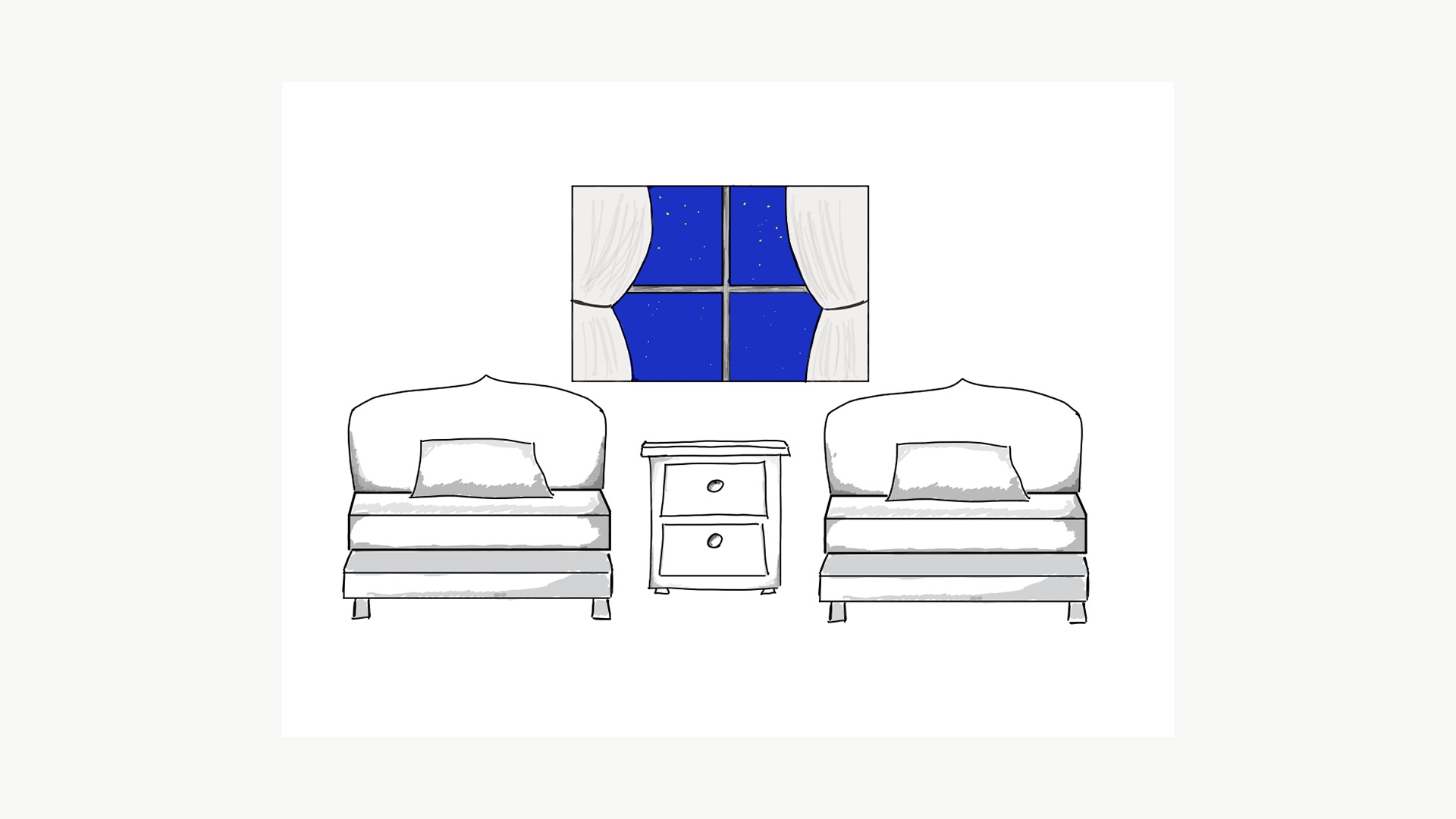In the summer of 2010, a young English instructor, emotionally unprepared for the chaos of elementary-school classrooms, told the story of a monster that devoured disobedient little children. The cautionary tale did little to subdue the rambunctious students but succeeded in causing 10 year-old me many, many sleepless nights. When night fell, the decision had to be made: to knock on my mother’s or my father’s door?
Years later, when I relayed this story to my friend in amusement, he asked me why my parents slept in separate bedrooms. The question was nonchalant and all the while damning as I, having been preoccupied with elaborate descriptions of said child-eating monster, completely tuned out the glaring “non-normality” of my parents’ sleeping habits. I struggle to recall the answer I made up to my friend’s question, but I am certain he, as did I, left the conversation believing I was the child of an unhappy marriage.
On television, even the most combative of couples share a bed. When a fight reaches its breaking point, the husband is often banished to the couch, the pair’s physical distance signaling a comparable emotional one. To the American public, the bedroom is a place of intimacy where affection can be displayed and conversations can be had away from the kids. The claim also holds true for many people of Chinese heritage like my parents, for it is likewise typical within their culture for spouses to share a bed.
Nonetheless, barring the separate bedrooms, there were no indicators of aloofness between my parents. In each other’s company, they laughed and joked, ever so tender and obviously comfortable. Their relationship caused me to re-evaluate my idea of a healthy marriage, starting with a divergence from Euro-centric and Sino-centric ideals.
It turns out that American and Chinese couples are actually in the minority when it comes to bed-sharing. Anthropologist John Whiting found that the common practice in 50 percent of the 136 societies he studied was for the child to sleep with the mother in one bed and the father to sleep in another. Recently, this preference seems to be seeping into Western society. A survey by the National Sleep Foundation revealed that almost one in four married American couples sleep in separate beds, while the National Association of Homebuilders cited an upward trend in custom dual-master bedrooms.
There are many reasons for couples to sleep in separate rooms, the most common being comfort. My parents have wildly different sleeping patterns. My mom is an especially light sleeper, which makes any noise during the night perturbing for her. They also have opposing preferences in room temperature. As a result, separate rooms seems to be the obvious answer, save for the consequence of outside judgment. My dad told me that they don’t mention it in front of their acquaintances for fear of being misunderstood. Indeed, there are many negative implications to room separation, and my dad attributes the success of their situation to a mutual preference for comfort over formality and the open-mindedness of my grandparents when it comes to following Chinese traditions.
Bed-sharing is just one of many restrictive norms that can damage the relationship between live-in partners. For those without sleep compatibility, sharing a bed would result in a sharp decrease in the quality and duration of sleep, leading to other health risks, such as heart disease and issues with memory. Furthermore, it could lead people to believe that they are not suited for each other just because they struggle to fulfill the baseless expectation of sharing a bed. This is especially true for cross-cultural relationships, where conflicts may arise out of a divergence in deep-rooted values that inform behavior. Yet, couples continue to be silent about this issue for fear of social repercussions or offending each other.
The validation of room-separation is especially important to me as someone with chronic onset insomnia. For me, the process of trying to sleep can be very frustrating and exhausting, and I often undergo bouts of sleep deprivation due to anxiety. Consequently, I have developed a very particular bedtime routine. In relationships, I look for people who will understand that sleeping on my own does not indicate a lack of desire for physical intimacy. Funnily enough, I actually find comfort in having another person around, but my brain is wired to respond adversely, so there will always be some sacrifice of sleep involved in sharing a bed.
I am not alone in this matter—quite the opposite, as one in three people suffer from at least a mild form of insomnia. If sleep incompatibility was a deal-breaker, then it would be very unlikely for any of us to find partners at all. Fortunately, from my parents, I have learned that the happiness of a relationship is independent of its cosmetic upkeep, and it may very well be due to the disregard for the latter that the former succeeds. It helps to see that the positive connotations of bed-sharing are not inherent to the action itself; for instance, you can still cuddle, play fight, and have “pillow talk” before retiring to separate beds to sleep.
Flexibility with sleeping arrangements is not only productive, but also a revealing characteristic of an understanding partnership. Simply having this conversation with your significant other is the first step toward effective communication. More importantly, it gives you the basic well-restedness you need to sustain a fun and playful relationship. It is a wonderful feeling to rest knowing that your significant other values your security over social expectations and your health over their reputation. Besides, who says living together has to halt the thrill of sneaking into your partner’s room?





